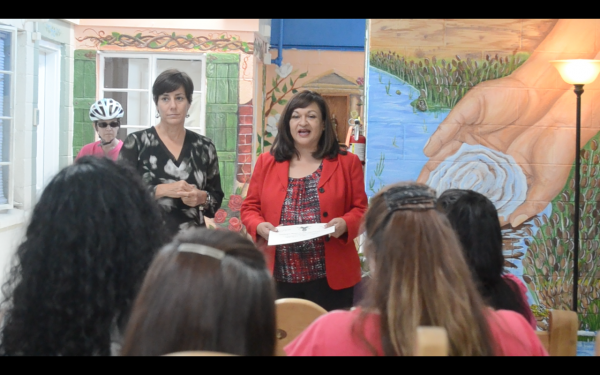El Paso County Attorney awards scholarships to violence victims through Cycle for Change program
|
Overseeing daily cases of domestic violence prompted El Paso County Attorney Jo Anne Bernal and her staff to develop an idea for partnering with women to break the cycle of violence and help them to thrive. The idea gave birth to Cycle for Change, an annual cycling tour that began in 2013 to raise money for scholarships for women who are trying to move beyond a past of domestic violence. The scholarships can be used in pursuit of any endeavor, whether it be academic or therapeuticEl Paso’s county attorney’s office helps obtain protective orders for victims of domestic violence, dating violence, sexual assault and stalking. “When we deal with victims of domestic violence, we deal with women who are primarily in crisis,” Bernal said. Now, the county attorney’s office partners with Villa Maria, a homeless shelter for women without children, to put on Cycling for Change.

